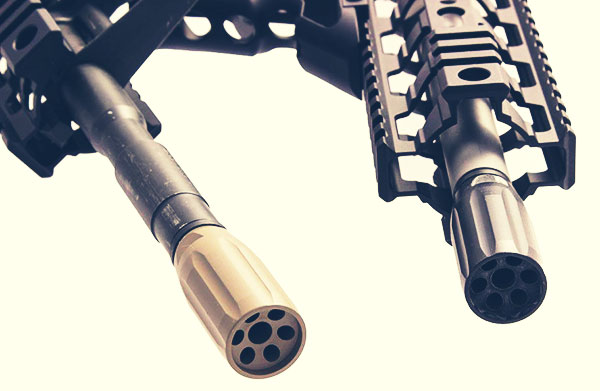Any comment about a linear compensator? Do they make a difference as far as noise and muzzle flash goes?
A linear compensator gun is a type of firearm muzzle device that is used to reduce recoil and muzzle rise. It does this by redirecting the gases expelled from the barrel of the gun in a straight line, which counteracts the forces that cause recoil and muzzle rise. This results in a smoother shot, with less vertical movement of the gun.
There are a few different types of linear compensators available on the market, but they all work in essentially the same way. Some examples of linear compensators include the A2-style flash hider, the M4-72 SEI muzzle brake, and the KAC QDC flash suppressor.
Installing a linear compensator on your gun is a relatively simple process, and can be done at home with just a few tools. In most cases, all you will need is a wrench or a set of Allen keys.
Once you have installed your linear compensator, you will immediately notice a difference in the way your gun feels when you shoot it. The recoil will be reduced, and the muzzle rise will be all but eliminated. This makes for a much more enjoyable shooting experience and will help you to keep your shots on target. Here a quick video about linear comp:
If you are looking for a way to improve the performance of your gun and make shooting more fun, then a linear compensator is a great option to consider.
A linear compensator gun is a type of firearm that uses a linear compensator to reduce recoil.
The linear compensator redirects the gasses expelled from the barrel of the gun in a straight line, which helps to counteract the recoil caused by the explosion of the bullet. This results in less movement of the gun when fired, making it easier to control and improving accuracy.
Linear compensators are most commonly used on rifles, but can also be found on pistols and shotguns. They are especially popular among competition shooters and those who shoot frequently, as the reduced recoil can help to improve accuracy and precision.
There are a few things to keep in mind when using a linear compensator gun. First, because the gasses are redirected, they will be expelled from the gun in a straight line. This means that it is important to be aware of your surroundings and make sure that there is no one directly behind you when firing.
Second, linear compensators can be loud, so if you are shooting in an area where noise is a concern, you may want to consider using a different type of firearm.
Third, because the gasses are redirected, they can build up heat inside the compensator. This can cause the gun to overheat if it is fired too frequently, so it is important to take breaks and allow the gun to cool down as needed.
Overall, linear compensators are a great way to reduce recoil and improve accuracy. They are especially beneficial for those who shoot frequently or compete in shooting sports. Just be sure to keep the above considerations in mind when using one, and always practice safety first.
Do you have any other questions about gun compensators? Let us know in the comments below!
A linear compensator gun is a type of firearm muzzle brake or recoil compensator that uses the principle of linear momentum to decrease the amount of recoil experienced by the shooter.
This type of muzzle brake is generally considered to be more effective than traditional designs, as it dissipates energy along the entire length of the barrel, rather than just at the muzzle. This helps to reduce felt recoil and makes it easier for the shooter to keep the gun on target.
A linear compensator gun is a type of firearm that uses a linear compensator to reduce recoil. It does this by redirecting some of the gases released by the explosion down the barrel, which counteracts the backward momentum of the bullet. This allows for faster follow-up shots and less fatigue for the shooter.
Linear compensator guns are not as common as other types of firearms, but they are becoming more popular thanks to their high level of accuracy and reduced recoil. They are most often used in competitions and target shooting, where precision is key.

